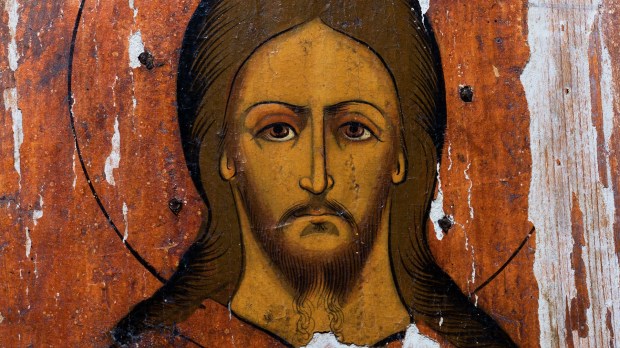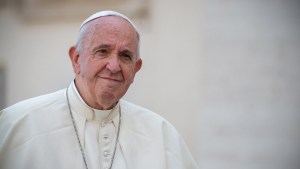A scholar of the law tests Jesus by asking, “Teacher, which commandment in the law is the greatest?” (Mt 22:34-40 — this Sunday’s Gospel). It’s not just what Jesus says in reply — “You shall love the Lord, your God, with all your heart, with all your soul, and with all your mind” — but it’s the way the Lord says it. For as the scholar looks into the eyes of this man, he sees how Jesus is loving the Lord his God, his Father, with all his heart, his soul, and his mind. And how could he not be moved?
With All Your Heart
To love the Lord with all our heart is to recognize that, at the core of our very self, is — in the expression of the Catechism — “our hidden center.” It is the place of encounter, of decision, of choosing life or death, of covenant (CCC 2563).
More than something sentimental, the heart is our deepest dwelling-place where we withdraw to get to the truth about ourselves so that we can live our true self — not our false self.
In the beautiful film Of Gods and Men, an early scene shows a Muslim young woman asking an old Catholic monk about what it is like to fall in love. The monk gives a most amazing answer: “There’s something inside you that comes alive, the presence of someone. It’s irrepressible and makes your heart beat faster. It’s an attraction, a desire.” When the woman asks the monk if he has ever been in love, he answers, “Yes, several times. And then I encountered another Love, even greater. And I answered that Love.”
We love the Lord our God with all our heart because a lesser love would never be enough for us. The heart knows what it is made for. In the words of the poet Christian Wiman:
I did not know what love was until I encountered one that kept opening and opening and opening. And until I acknowledged that what that love was opening onto, and into, was God.
With All Your Soul
The Catechism speaks of the “soul” as the innermost aspect of man, that which is of greatest value in him, that by which he is most especially in God’s image: ‘soul’ signifies the spiritual principle in man” (CCC 363).
And the only “soul food” adequate to nourish us is God’s love and living in God’s love. The Psalms can’t proclaim this enough:
As a deer longs for flowing streams,
so longs my soul
for you, O God.
My soul thirsts for God,
for the living God.
When shall I come and behold
the face of God? (Psalm 42:1–2)
Christ’s command to love reveals to us a grace and a privilege that we could never fathom without him: the “soul can gratuitously be raised beyond all it deserves to communion with God” (CCC 367). Love makes this possible.
As God delights in declaring to St. Catherine of Siena in her Dialogue:
The soul cannot live without love, but always wants to love something, because she is made of love, and, by love, I created her …. [T]he affection moved the intellect, saying, as it were, I will love, because the food on which I feed is love.
With All Your Mind
In Of Gods and Men, the small community of monks realize that they are living under a tremendous threat. At any moment, terrorists will break into their monastery, drag them away, torture and kill them. If they stay, they know that this is their destiny. They have to make up their mind to remain or to go.
One young monk, grappling with the anxiety of it all, late one night prays in anguish in his cell. He pleads with God, “Help me, help me! Don’t abandon me. Don’t abandon me! Please help!” His pleas turn into screams. He wakes up the other monks. They think he’s being attacked.
But then this holy man applies his mind in faith to the impossible situation. And he begins, very intentionally, to love the Lord with all his mind. As the community draws close to making a decision, this monk, once again, is discovered alone in his cell, praying. But this time his prayer is a whisper. He prays, “You. You envelop me, hold me, surround me. You embrace me. And I love you.”
We cannot reflect enough on these beautiful words of Servant of God Pedro Arrupe, S.J.:
Nothing is more practical than finding God, than falling in love in a quite absolute, final way. What you are in love with, what seizes your imagination, will affect everything. It will decide what will get you out of bed in the morning, what you do with your evenings, how you spend your weekends, what you read, whom you know, what breaks your heart, and what amazes you with joy and gratitude. Fall in love, stay in love, and it will decide everything.
~
Find Fr. Peter John Cameron’s reflection on the Sunday Gospel each week here.
And follow his series of brief reflections on prayer here.


